Company Details
nsw-health
22,121
184,811
62
nsw.gov.au
0
NSW_1962964
In-progress
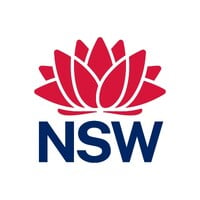
NSW Health Company CyberSecurity Posture
nsw.gov.auWith more than 170,000 staff and 228 hospitals, there are millions of ways we are enriching the health of the NSW community every day. In front of a patient, working in a kitchen, developing new treatments, or at a desk, each one of our staff is a vital member of the largest health organisation in Australia. What binds us is our shared passion and commitment to caring for people. We’re empowering staff to work to their full potential and equip people with skills and capabilities to be agile and responsive. Join the team enriching health in millions of ways every day. Find out more: https://www.health.nsw.gov.au/careers/Pages/benefits.aspx View our social media community guidelines here: https://www.health.nsw.gov.au/social/Pages/community-guidelines
Company Details
nsw-health
22,121
184,811
62
nsw.gov.au
0
NSW_1962964
In-progress
Between 750 and 799

 NSW Health Global Score (TPRM)
NSW Health Global Score (TPRM)XXXX

Description: The New South Wales (NSW) Health inadvertently exposed confidential documents of nearly 600 medical staff, including 67 senior doctors, via a misconfigured website platform. The leaked data—part of the 'credentialing process' for current, former, and prospective senior medical officers (2020–2025)—included highly sensitive personal and professional records: passports, driver’s licences, Medicare cards, medical qualifications, work histories, logbooks, reference letters, and registrations with regulatory bodies (Ahpra, medical colleges). While no malicious use was confirmed, the breach posed severe risks of identity theft, fraud, and impersonation (e.g., applying for medical roles, purchasing drugs like fentanyl, or generating fake expert opinions). NSW Health acknowledged the 'unauthorised disclosure' stemmed from a website configuration error, not a cyberattack, and offered affected staff reimbursement for ID renewals and support via IDCare. The incident sparked outrage among doctors, with unions criticizing NSW Health’s 'reckless' data handling and 'double standards' in safeguarding staff privacy while enforcing strict social media policies on them.
Description: More than 1,000 medical records of over 400 patients were found on the floor of the derelict and former site of the Garrawarra Centre ,an aged care facility operated by the NSW Government. A selection of documents obtained by the ABC and safely returned to NSW Health had been cleared of asbestos contamination. People shouldn't be able to see those records, they're personal, and that home is supposed to have a duty of care.


No incidents recorded for NSW Health in 2025.
No incidents recorded for NSW Health in 2025.
No incidents recorded for NSW Health in 2025.
NSW Health cyber incidents detection timeline including parent company and subsidiaries

With more than 170,000 staff and 228 hospitals, there are millions of ways we are enriching the health of the NSW community every day. In front of a patient, working in a kitchen, developing new treatments, or at a desk, each one of our staff is a vital member of the largest health organisation in Australia. What binds us is our shared passion and commitment to caring for people. We’re empowering staff to work to their full potential and equip people with skills and capabilities to be agile and responsive. Join the team enriching health in millions of ways every day. Find out more: https://www.health.nsw.gov.au/careers/Pages/benefits.aspx View our social media community guidelines here: https://www.health.nsw.gov.au/social/Pages/community-guidelines

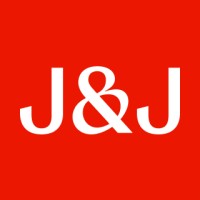
At Johnson & Johnson MedTech, we are working to solve the world’s most pressing healthcare challenges through innovations at the intersection of biology and technology. With deep expertise in surgery, orthopaedics, cardiovascular, and vision, we design healthcare solutions that are smarter, less inv
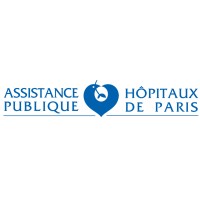
AP-HP (Greater Paris University Hospitals) is a European world-renowned university hospital. Its 39 hospitals treat 8 million people every year: in consultation, emergency, during scheduled or home hospitalizations. The AP-HP provides a public health service for everyone, 24 hours a day. This missi
The Netcare Group (JSE: NTC) offers a unique, comprehensive range of medical services across the healthcare spectrum, enabling us to serve the health and care needs of each individual who entrust their care to us. Our focus on implementing sophisticated digital systems will enable us to provide care

Clear and confident health care decisions begin with questions. At Labcorp, we’re constantly in pursuit of answers. As a global leader of innovative and comprehensive laboratory services, we help doctors, hospitals, pharmaceutical companies, researchers and patients make clear and confident decisi

Allegheny Health Network is an integrated health care delivery system serving the greater Western Pennsylvania region. More than 2,600 physicians and 21,000 employees serve the system's 14 hospitals as well as its ambulatory medical and surgery centers, Health + Wellness Pavilions, and hundreds of p

Formed in 1994, Brown University Health (Formerly Lifespan) is a not-for-profit health system based in Providence, RI comprising three teaching hospitals of The Warren Alpert Medical School of Brown University: Rhode Island Hospital and its Hasbro Children's; The Miriam Hospital; and Bradley Hospita

Nationwide Children’s is one of America's largest pediatric hospitals, an international leader in research and is ranked in all 10 specialties on U.S. News & World Report’s 2025-26 “America’s Best Children’s Hospitals” list. Our staff, comprised of 1,600 medical professionals and over 16,000 employe
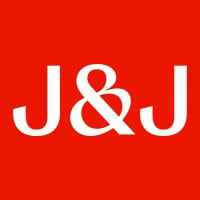
At Johnson & Johnson, we believe health is everything. As a focused healthcare company, with expertise in Innovative Medicine and MedTech, we’re empowered to tackle the world’s toughest health challenges, innovate through science and technology, and transform patient care. All of this is possibl
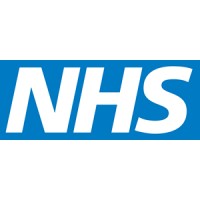
The NHS was launched in 1948. It was born out of a long-held ideal that good healthcare should be available to all, regardless of wealth – one of the NHS's core principles. With the exception of some charges, such as prescriptions, optical services and dental services, the NHS in England remains
.png)
The Cyber Security Act implements 4 initiatives under the 2023-2030 Australian Cyber Security Strategy, informed by an extensive consultation process.
NSW's refreshed cybersecurity strategy will strengthen governance and deliver critical support to all agencies across government,...
A contractor's ChatGPT upload has triggered a data breach at the NSW Reconstruction Authority, affecting up to 3000 people.
A NSW government data breach exposing up to 3,000 people has raised questions about the risks artificial intelligence pose to personal...
Nearly 600 medical staff have had their data exposed after the New South Wales health department mistakenly left confidential documents...
NSW government agencies have minimum controls in place to protect against cyberattacks, says a report.
A damning audit exposing cybersecurity failings at four of New South Wales' six local health districts will be kept under wraps until...
In short: An auditor-general's report found NSW government agencies only implemented less than a third of cybersecurity protections.
From hacks to headlines, here are two months of cyber news in retrospect (May and June 2025):. Cyber Top 10.

Explore insights on cybersecurity incidents, risk posture, and Rankiteo's assessments.
The official website of NSW Health is http://www.health.nsw.gov.au.
According to Rankiteo, NSW Health’s AI-generated cybersecurity score is 758, reflecting their Fair security posture.
According to Rankiteo, NSW Health currently holds 0 security badges, indicating that no recognized compliance certifications are currently verified for the organization.
According to Rankiteo, NSW Health is not certified under SOC 2 Type 1.
According to Rankiteo, NSW Health does not hold a SOC 2 Type 2 certification.
According to Rankiteo, NSW Health is not listed as GDPR compliant.
According to Rankiteo, NSW Health does not currently maintain PCI DSS compliance.
According to Rankiteo, NSW Health is not compliant with HIPAA regulations.
According to Rankiteo,NSW Health is not certified under ISO 27001, indicating the absence of a formally recognized information security management framework.
NSW Health operates primarily in the Hospitals and Health Care industry.
NSW Health employs approximately 22,121 people worldwide.
NSW Health presently has no subsidiaries across any sectors.
NSW Health’s official LinkedIn profile has approximately 184,811 followers.
NSW Health is classified under the NAICS code 62, which corresponds to Health Care and Social Assistance.
No, NSW Health does not have a profile on Crunchbase.
Yes, NSW Health maintains an official LinkedIn profile, which is actively utilized for branding and talent engagement, which can be accessed here: https://www.linkedin.com/company/nsw-health.
As of November 27, 2025, Rankiteo reports that NSW Health has experienced 2 cybersecurity incidents.
NSW Health has an estimated 29,990 peer or competitor companies worldwide.
Incident Types: The types of cybersecurity incidents that have occurred include Data Leak and Breach.
Detection and Response: The company detects and responds to cybersecurity incidents through an third party assistance with idcare (australia’s identity and cyber support service), and containment measures with all leaked documents were removed from the websites, and remediation measures with privacy impact assessments conducted, remediation measures with direct communication with affected clinicians, remediation measures with free identity support services (idcare) offered to staff, remediation measures with reimbursement for renewing identification documents (passport, driver’s licence, birth certificate), and recovery measures with full investigation underway, including forensic analysis, and communication strategy with letter from kate hackett (acting ceo, south eastern sydney district) to affected doctors, communication strategy with faq document provided to impacted staff, communication strategy with public apology via nsw health spokesperson..
Title: Medical Records Found on Floor of Derelict Aged Care Facility
Description: More than 1,000 medical records of over 400 patients were found on the floor of the derelict and former site of the Garrawarra Centre, an aged care facility operated by the NSW Government. A selection of documents obtained by the ABC and safely returned to NSW Health had been cleared of asbestos contamination. People shouldn't be able to see those records, they're personal, and that home is supposed to have a duty of care.
Type: Data Breach
Title: NSW Health Unauthorized Disclosure of Medical Staff Confidential Documents
Description: The New South Wales government accidentally leaked confidential documents belonging to almost 600 medical staff, including 67 senior doctors in Sydney, who had applied for jobs with the health department. The documents were mistakenly made publicly accessible via the South Eastern Sydney and Illawarra Shoalhaven local health districts’ websites due to a configuration error. The leaked data included highly sensitive personal and professional documents, raising concerns about identity theft and fraud.
Date Detected: 2024-08-21
Date Publicly Disclosed: 2024-08-21
Type: data breach
Vulnerability Exploited: Website platform configuration error (password-protected documents made publicly accessible via search)
Common Attack Types: The most common types of attacks the company has faced is Breach.

Data Compromised: Medical Records

Data Compromised: Personal identity documents (passports, driver’s licences, medicare cards), Professional documents (certificates, proof of credentials, work history, logbooks, letters of reference), Registrations to medical regulator (ahpra), Registrations to medical colleges, Application materials for senior medical officer roles
Systems Affected: South Eastern Sydney local health district websiteIllawarra Shoalhaven local health district website
Customer Complaints: ['Doctors expressed outrage over reckless handling of sensitive data', 'Fears of identity theft and misuse of medical qualifications']
Brand Reputation Impact: Erosion of trust among medical staffCriticism from Australian Medical Association (AMA) and Australian Salaried Medical Officers Federation (ASMOF)
Identity Theft Risk: ['High (comprehensive personal and professional data exposed)', 'Risk of impersonation for medical roles, drug purchases, or fraudulent expert opinions)']
Commonly Compromised Data Types: The types of data most commonly compromised in incidents are Medical Records, Personally Identifiable Information (Pii), Professional Credentials, Medical Registration Details, Employment Application Documents and .

Entity Name: Garrawarra Centre
Entity Type: Aged Care Facility
Industry: Healthcare
Location: NSW, Australia
Customers Affected: Over 400 patients

Entity Name: South Eastern Sydney Local Health District
Entity Type: Government Health Agency
Industry: Healthcare
Location: Sydney, New South Wales, Australia
Customers Affected: 67 senior doctors

Entity Name: Illawarra Shoalhaven Local Health District
Entity Type: Government Health Agency
Industry: Healthcare
Location: Illawarra Shoalhaven, New South Wales, Australia
Customers Affected: Over 500 medical staff

Entity Name: NSW Health
Entity Type: Government Health Department
Industry: Healthcare
Location: New South Wales, Australia

Incident Response Plan Activated: True
Third Party Assistance: Idcare (Australia’S Identity And Cyber Support Service).
Containment Measures: All leaked documents were removed from the websites
Remediation Measures: Privacy impact assessments conductedDirect communication with affected cliniciansFree identity support services (IDCare) offered to staffReimbursement for renewing identification documents (passport, driver’s licence, birth certificate)
Recovery Measures: Full investigation underway, including forensic analysis
Communication Strategy: Letter from Kate Hackett (acting CEO, South Eastern Sydney district) to affected doctorsFAQ document provided to impacted staffPublic apology via NSW Health spokesperson
Third-Party Assistance: The company involves third-party assistance in incident response through IDCare (Australia’s identity and cyber support service), .

Type of Data Compromised: Medical Records
Number of Records Exposed: More than 1,000
Sensitivity of Data: High

Type of Data Compromised: Personally identifiable information (pii), Professional credentials, Medical registration details, Employment application documents
Number of Records Exposed: Almost 600 (including 67 senior doctors and over 500 medical staff)
Sensitivity of Data: Extremely high (comprehensive personal and professional records enabling identity theft and fraud)
Data Encryption: Intended (documents were supposed to be password-protected but were misconfigured)
File Types Exposed: PDFs (passports, driver’s licences, Medicare cards)Certificates (proof of credentials)LogbooksLetters of referenceRegistration documents (Ahpra, medical colleges)
Personally Identifiable Information: Full namesPassport detailsDriver’s licence detailsMedicare card numbersWork historyProfessional referencesMedical registration numbers
Prevention of Data Exfiltration: The company takes the following measures to prevent data exfiltration: Privacy impact assessments conducted, Direct communication with affected clinicians, Free identity support services (IDCare) offered to staff, Reimbursement for renewing identification documents (passport, driver’s licence, birth certificate), .
Handling of PII Incidents: The company handles incidents involving personally identifiable information (PII) through by all leaked documents were removed from the websites and .
Data Recovery from Ransomware: The company recovers data encrypted by ransomware through Full investigation underway, including forensic analysis, .

Lessons Learned: Critical importance of proper website configuration for sensitive document storage, Need for robust access controls and regular audits of public-facing systems, Significance of timely communication and support for affected individuals in data breaches

Recommendations: Implement stricter access controls for sensitive documents on government websites, Conduct regular security audits and penetration testing for public-facing platforms, Enhance staff training on data protection and incident response protocols, Establish clearer protocols for handling and storing highly sensitive personal and professional dataImplement stricter access controls for sensitive documents on government websites, Conduct regular security audits and penetration testing for public-facing platforms, Enhance staff training on data protection and incident response protocols, Establish clearer protocols for handling and storing highly sensitive personal and professional dataImplement stricter access controls for sensitive documents on government websites, Conduct regular security audits and penetration testing for public-facing platforms, Enhance staff training on data protection and incident response protocols, Establish clearer protocols for handling and storing highly sensitive personal and professional dataImplement stricter access controls for sensitive documents on government websites, Conduct regular security audits and penetration testing for public-facing platforms, Enhance staff training on data protection and incident response protocols, Establish clearer protocols for handling and storing highly sensitive personal and professional data
Key Lessons Learned: The key lessons learned from past incidents are Critical importance of proper website configuration for sensitive document storage,Need for robust access controls and regular audits of public-facing systems,Significance of timely communication and support for affected individuals in data breaches.

Source: ABC
Additional Resources: Stakeholders can find additional resources on cybersecurity best practices at and Source: ABC, and Source: The Guardian AustraliaUrl: https://www.theguardian.com/australia-news/2024/aug/22/nsw-health-data-breach-doctors-medical-staff-confidential-documents-leakDate Accessed: 2024-08-22.

Investigation Status: Ongoing (full investigation and forensic analysis in progress)
Communication of Investigation Status: The company communicates the status of incident investigations to stakeholders through Letter From Kate Hackett (Acting Ceo, South Eastern Sydney District) To Affected Doctors, Faq Document Provided To Impacted Staff and Public Apology Via Nsw Health Spokesperson.

Stakeholder Advisories: Letter From Kate Hackett (Acting Ceo, South Eastern Sydney Local Health District) To Affected Doctors, Faq Document Distributed To Impacted Staff, Statements From Nsw Health Spokesperson And Australian Medical Association (Ama).
Customer Advisories: Direct communication with affected clinicians offering support services (IDCare)Reimbursement for identity document renewal costsGuidance on monitoring for identity theft and fraud
Advisories Provided: The company provides the following advisories to stakeholders and customers following an incident: were Letter From Kate Hackett (Acting Ceo, South Eastern Sydney Local Health District) To Affected Doctors, Faq Document Distributed To Impacted Staff, Statements From Nsw Health Spokesperson And Australian Medical Association (Ama), Direct Communication With Affected Clinicians Offering Support Services (Idcare), Reimbursement For Identity Document Renewal Costs, Guidance On Monitoring For Identity Theft And Fraud and .

Root Causes: Website Misconfiguration (Password-Protected Documents Made Publicly Accessible Via Search),
Corrective Actions: Removal Of Exposed Documents, Engagement Of Idcare For Identity Support, Privacy Impact Assessments, Forensic Analysis To Prevent Recurrence,
Post-Incident Analysis Process: The company's process for conducting post-incident analysis is described as Idcare (Australia’S Identity And Cyber Support Service), .
Corrective Actions Taken: The company has taken the following corrective actions based on post-incident analysis: Removal Of Exposed Documents, Engagement Of Idcare For Identity Support, Privacy Impact Assessments, Forensic Analysis To Prevent Recurrence, .
Most Recent Incident Detected: The most recent incident detected was on 2024-08-21.
Most Recent Incident Publicly Disclosed: The most recent incident publicly disclosed was on 2024-08-21.
Most Significant Data Compromised: The most significant data compromised in an incident were Medical Records, personal identity documents (passports, driver’s licences, Medicare cards), professional documents (certificates, proof of credentials, work history, logbooks, letters of reference), registrations to medical regulator (Ahpra), registrations to medical colleges, application materials for senior medical officer roles and .
Most Significant System Affected: The most significant system affected in an incident was South Eastern Sydney local health district websiteIllawarra Shoalhaven local health district website.
Third-Party Assistance in Most Recent Incident: The third-party assistance involved in the most recent incident was idcare (australia’s identity and cyber support service), .
Containment Measures in Most Recent Incident: The containment measures taken in the most recent incident was All leaked documents were removed from the websites.
Most Sensitive Data Compromised: The most sensitive data compromised in a breach were personal identity documents (passports, driver’s licences, Medicare cards), registrations to medical regulator (Ahpra), Medical Records, registrations to medical colleges, application materials for senior medical officer roles, professional documents (certificates, proof of credentials, work history, logbooks and letters of reference).
Number of Records Exposed in Most Significant Breach: The number of records exposed in the most significant breach was 2.2K.
Most Significant Lesson Learned: The most significant lesson learned from past incidents was Significance of timely communication and support for affected individuals in data breaches.
Most Significant Recommendation Implemented: The most significant recommendation implemented to improve cybersecurity was Conduct regular security audits and penetration testing for public-facing platforms, Implement stricter access controls for sensitive documents on government websites, Enhance staff training on data protection and incident response protocols and Establish clearer protocols for handling and storing highly sensitive personal and professional data.
Most Recent Source: The most recent source of information about an incident are The Guardian Australia and ABC.
Most Recent URL for Additional Resources: The most recent URL for additional resources on cybersecurity best practices is https://www.theguardian.com/australia-news/2024/aug/22/nsw-health-data-breach-doctors-medical-staff-confidential-documents-leak .
Current Status of Most Recent Investigation: The current status of the most recent investigation is Ongoing (full investigation and forensic analysis in progress).
Most Recent Stakeholder Advisory: The most recent stakeholder advisory issued was Letter from Kate Hackett (acting CEO, South Eastern Sydney Local Health District) to affected doctors, FAQ document distributed to impacted staff, Statements from NSW Health spokesperson and Australian Medical Association (AMA), .
Most Recent Customer Advisory: The most recent customer advisory issued was an Direct communication with affected clinicians offering support services (IDCare)Reimbursement for identity document renewal costsGuidance on monitoring for identity theft and fraud.
.png)
Angular is a development platform for building mobile and desktop web applications using TypeScript/JavaScript and other languages. Prior to versions 19.2.16, 20.3.14, and 21.0.1, there is a XSRF token leakage via protocol-relative URLs in angular HTTP clients. The vulnerability is a Credential Leak by App Logic that leads to the unauthorized disclosure of the Cross-Site Request Forgery (XSRF) token to an attacker-controlled domain. Angular's HttpClient has a built-in XSRF protection mechanism that works by checking if a request URL starts with a protocol (http:// or https://) to determine if it is cross-origin. If the URL starts with protocol-relative URL (//), it is incorrectly treated as a same-origin request, and the XSRF token is automatically added to the X-XSRF-TOKEN header. This issue has been patched in versions 19.2.16, 20.3.14, and 21.0.1. A workaround for this issue involves avoiding using protocol-relative URLs (URLs starting with //) in HttpClient requests. All backend communication URLs should be hardcoded as relative paths (starting with a single /) or fully qualified, trusted absolute URLs.
Forge (also called `node-forge`) is a native implementation of Transport Layer Security in JavaScript. An Uncontrolled Recursion vulnerability in node-forge versions 1.3.1 and below enables remote, unauthenticated attackers to craft deep ASN.1 structures that trigger unbounded recursive parsing. This leads to a Denial-of-Service (DoS) via stack exhaustion when parsing untrusted DER inputs. This issue has been patched in version 1.3.2.
Forge (also called `node-forge`) is a native implementation of Transport Layer Security in JavaScript. An Integer Overflow vulnerability in node-forge versions 1.3.1 and below enables remote, unauthenticated attackers to craft ASN.1 structures containing OIDs with oversized arcs. These arcs may be decoded as smaller, trusted OIDs due to 32-bit bitwise truncation, enabling the bypass of downstream OID-based security decisions. This issue has been patched in version 1.3.2.
Suricata is a network IDS, IPS and NSM engine developed by the OISF (Open Information Security Foundation) and the Suricata community. Prior to versions 7.0.13 and 8.0.2, working with large buffers in Lua scripts can lead to a stack overflow. Users of Lua rules and output scripts may be affected when working with large buffers. This includes a rule passing a large buffer to a Lua script. This issue has been patched in versions 7.0.13 and 8.0.2. A workaround for this issue involves disabling Lua rules and output scripts, or making sure limits, such as stream.depth.reassembly and HTTP response body limits (response-body-limit), are set to less than half the stack size.
Suricata is a network IDS, IPS and NSM engine developed by the OISF (Open Information Security Foundation) and the Suricata community. In versions from 8.0.0 to before 8.0.2, a NULL dereference can occur when the entropy keyword is used in conjunction with base64_data. This issue has been patched in version 8.0.2. A workaround involves disabling rules that use entropy in conjunction with base64_data.

Get company history
















Every week, Rankiteo analyzes billions of signals to give organizations a sharper, faster view of emerging risks. With deeper, more actionable intelligence at their fingertips, security teams can outpace threat actors, respond instantly to Zero-Day attacks, and dramatically shrink their risk exposure window.
Identify exposed access points, detect misconfigured SSL certificates, and uncover vulnerabilities across the network infrastructure.
Gain visibility into the software components used within an organization to detect vulnerabilities, manage risk, and ensure supply chain security.
Monitor and manage all IT assets and their configurations to ensure accurate, real-time visibility across the company's technology environment.
Leverage real-time insights on active threats, malware campaigns, and emerging vulnerabilities to proactively defend against evolving cyberattacks.




